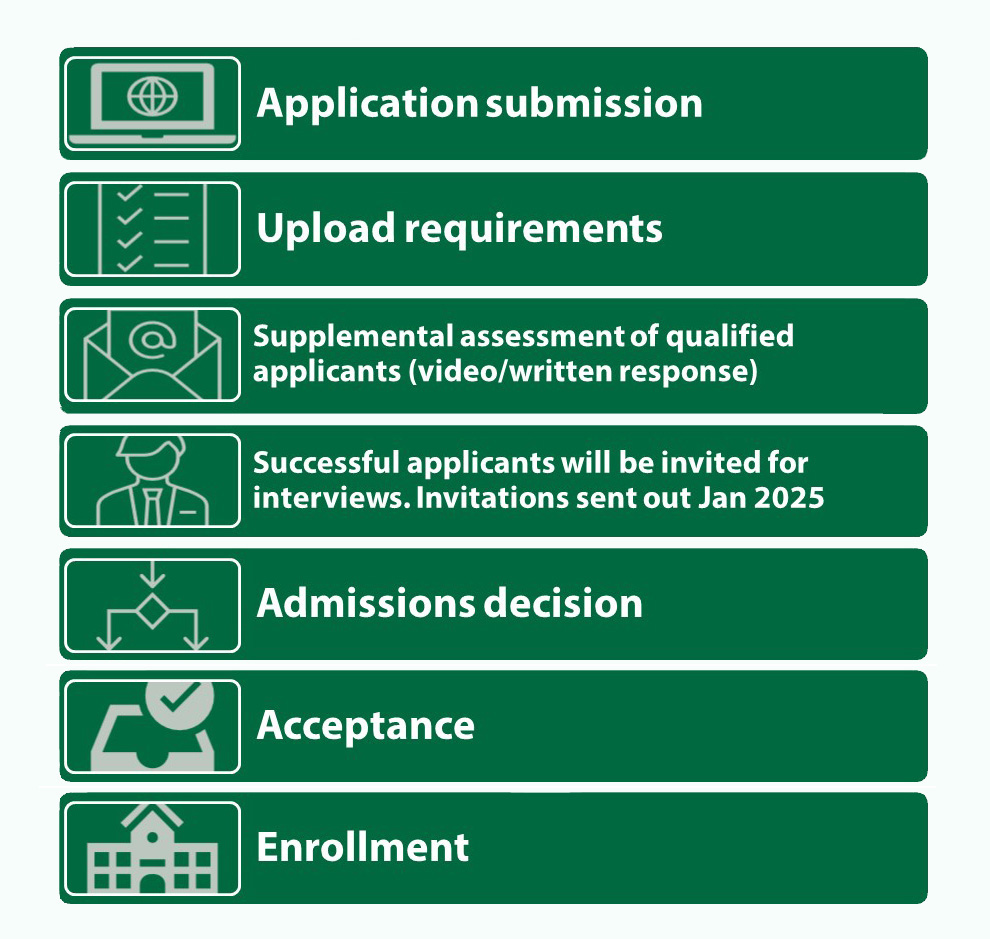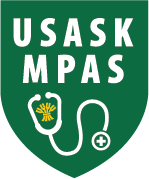Welcome to the MPAS Program
Admissions are open from September 18 to November 18, 2025. File reviews will only begin once a formal application has been submitted. All correspondence must be via email, and we will do our best to respond within 3-5 business days.
Thank you for your patience and your interest in the MPAS program.
Program Overview
Welcome to the Master of Physician Assistant Studies (MPAS) program at the College of Medicine, University of Saskatchewan. As the inaugural program in our province, we are committed to fostering excellence in training, research, and clinical practice. We aim to prepare Physician Assistants who will become key contributors to collaborative healthcare teams, significantly improving service efficiency and patient care.
Physician Assistants are health care professionals that work under the supervision of licensed physicians, but have autonomy to perform a wide range of clinical tasks and procedures. By nature, Physician Assistants work in teams with many other health professionals in clinics, hospitals and communities. Learning alongside and from other health sciences students will strengthen interprofessional relationships that can support stronger, more team-based health care in the workplace.
Quick Facts
Program Type |
Course-based with a research capstone project |
Residency eligibility |
Only Canadian citizens and permanent residents are eligible to apply for the MPAS program. |
Prerequisites and Admissions Information |
Please review all admissions requirements, including prerequisites courses and deadlines to submit them, on our Admissions Page. |
MPAS Scholarship Funding |
Available, but not guaranteed. For more information, visit Scholarships and Awards. |
CASPer Requirement |
No |
English Language Requirement |
Proof of language proficiency is required. More details at USask Graduate Admissions |
Potential Career Paths |
Numerous diverse career paths in all areas of medicine are possible after completing MPAS and the national PA licencing examination. No additional formal training is required after completing MPAS program to enter the health care workforce. |
Accreditation |
In adherence to standards for Canadian PA Programs, the Program has been 'Admitted' to Accreditation Canada's EQual program for health education accreditation. |
Tuition |
Tuition rate for the 2025-26 academic year is approximately $15,600 CAD. In addition to tuition, students are required to pay Graduate Student Fees. For more information about these fees, please visit our Graduate Tuition and Fees page. Tuition rates are reviewed and updated annually, typically around May-June. Please check our website regularly for the most current information on future rates. |
Admissions Process

Thank you for your interest in our MPAS program. As the province's only Physician Assistant training program, we are deeply committed to supplying the health care workforce with well-trained, highly competent professionals. Our program emphasizes strong connections to Saskatchewan, including our rural roots.
The MPAS admission requirements at the University of Saskatchewan are defined by the rigorous standards set by both the College of Medicine and the College of Graduate and Postdoctoral Studies. Emphasizing equity, diversity, inclusion, accessibility, and Indigenous (EDIAI) values, our program is dedicated to providing equitable access to education for all, mirroring the University's commitment to creating a varied and inclusive academic environment.
Aligned with the College of Medicine’s commitment to social accountability, our program aims to significantly increase the representation of Saskatchewan residents, especially those from underserved communities. This initiative underlines our strategic goal to address local health care needs and promote a diverse range of perspectives within our academic community. We actively invite applicants from varied geographical and educational backgrounds to enhance our program and deepen our collective understanding of global and community health challenges.
Prospective students are advised that the MPAS curriculum is intensive, fast paced, full-time, and designed to prepare graduates for the complexities of the health care field with rigor and depth.
The admission requirements currently displayed are for the Fall 2026 intake. Please continue to visit the MPAS Program admissions requirements on the College of Graduate and Postdoctoral Studies website for the most-up-to-date information regarding future admission cycles.
For more information, please view the MPAS Program Indigenous Studies Pre-Requisite Requirement document on USask's Programs website. (Please note that this document will be updated as soon as we have the new Indigenous Studies-approved courses).
What is a Physician Assistant?
Physician Assistants (PAs) are clinicians who practice under the supervision of a licensed physician. They are highly skilled and can work in any clinical setting, including on multidisciplinary health teams. They can extend the reach of a physician, and their scope of practice is determined by supervising physicians.
Learn more about the role of a PA, the PA professional associations and the regulatory boards.
For additional resources and community engagement, the Canadian Association of Physician Assistants (CAPA) recommends visiting the following:
- CAPA Facebook Page: Visit the page for inquires about PAs available for shadowing in your area
- Canadian Pre-PA Student Network: Join the community
- Canadian PA Blog: Explore detailed insights and information
- Physician Assistant Podcast: Listen to discussions and updates
- ‘PA Dani’ YouTube channel: Watch informative videos
News
Loading...
Events
Contact Us
Remember, our application review process begins with your first communication with the MPAS program office. Maintaining respectful and professional behaviour throughout the admission process is crucial.
All inquiries regarding your application MUST be emailed. Please note that we do not handle questions via phone or in-person visits to ensure clarity and consistency for all prospective students. While you are welcome to stop by our office for a visit, we will not be able to answer any admission related questions during your visit.
Office of Physician Assistant Studies
College of Medicine, University of Saskatchewan
Room GA20, Health Sciences Building
107 Wiggins Road, Saskatoon, SK, S7N 5E5
Email: mpas@usask.ca
Telephone: 306-966-8365

